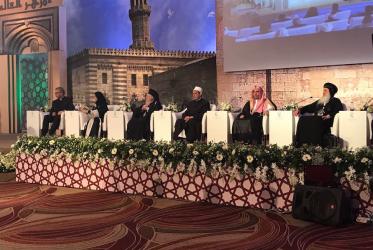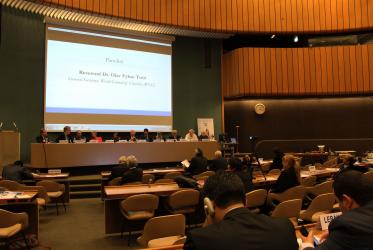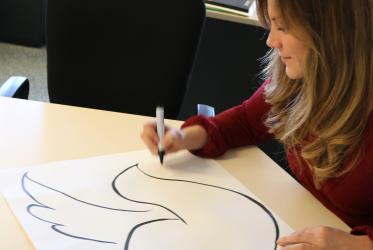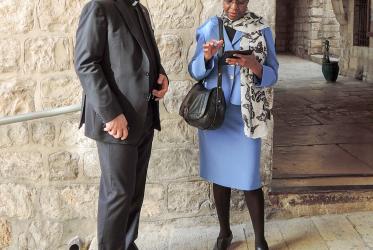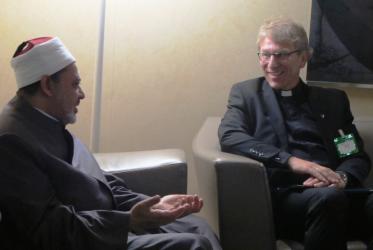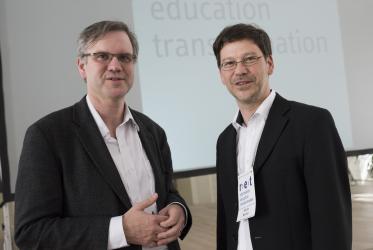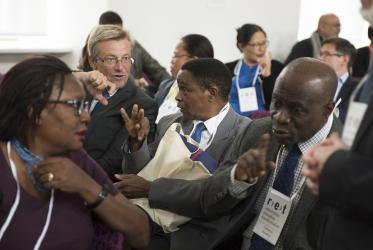Displaying 81 - 100 of 151
Holy work for the Holy Land
29 March 2017
Islam and Christianity: finding the common ground
16 March 2017
In Lebanon, refugees face hardship - but find hope
16 March 2017
Praying for one another, even when we disagree
02 March 2017
How do you say “peace?”
20 February 2017
Children from Bethlehem in key role, as WCC shares Christmas message
22 December 2016
WCC hosts discussion on religious radicalisation
13 December 2016
Dialogue flourishes between WCC, Muslim Council of Elders
30 September 2016
WCC general secretary reflects on peace in Palestine and Israel
20 September 2016
Hielke Wolters: Apostle of mission strategies
01 August 2016
‘Unprecedented times of hopelessness’ in Holy Land
11 July 2016
Peace, health and education are Gaza's future
24 May 2016
